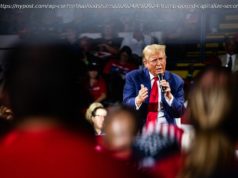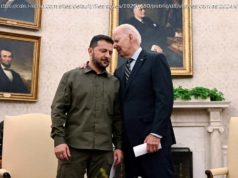The US Supreme Court is allowing the Trump administration to fully enforce a ban on travel to the States by residents of six mostly Muslim countries.
The US Supreme Court is allowing the Trump administration to fully enforce a ban on travel to the States by residents of six mostly Muslim countries.
The justices said in an order last night that the policy can take full effect, even as legal challenges against it make their way through lower courts.
The ban applies to travellers from Chad, Iran, Libya, Somalia, Syria and Yemen.
Lower courts had said people from those nations with a claim of a « bona fide » relationship with someone in the United States could not be kept out of the country.
Grandparents, cousins and other relatives were among those courts said could not be excluded.
Two of the nine justices dissented in the decision, with Justices Ruth Bader Ginsburg and Sonia Sotomayor saying they would have left the lower court orders in place.
In one of the lower courts, in Hawaii, Judge Derrick Watson had ruled the ban would mean people being illegally targeted because of their nationality.
In Maryland, Judge Theodore Chuang had decided it was unconstitutional because it targeted people based on their religion.
Lawyers for Mr Trump’s administration argued to the Supreme Court that the travel ban was based on a « comprehensive » worldwide review.
Last week the Justice Department said « the national interest warrants the exclusion of certain foreign nationals, and conclusively rebuts respondents’ claims that the entry restrictions were motivated by animus rather than protecting national security ».
The state of Hawaii and the International Refugee Assistance Project had argued to the Supreme Court that « the president’s third travel ban, like his first and his second, is irreconcilable with the immigration laws and the Constitution ».
« It continues the same policy of excluding Muslims that multiple courts previously held unconstitutional. »
Meanwhile, Mr Trump is close to a decision on whether to recognise Jerusalem as Israel’s capital, his son-in-law and Middle East peace envoy Jared Kushner has said.
Palestinian leaders are lobbying desperately against such a move, which the Arab League chief Ahmed Abul Gheit said would boost fanaticism and violence while sinking remaining hopes for peace.
But Mr Kushner made a rare public appearance to put an optimistic face on his efforts.
« The president’s going to make his decision, » he told the Saban Forum, choosing not to deny reports that Mr Trump will declare Jerusalem to be Israel’s capital tomorrow.
Mr Trump must decide whether to sign a legal waiver that would delay for a further six months plans to move the US embassy from Tel Aviv to Jerusalem.
Every US president has done this since 1995, judging the time not ripe for such a move, and Mr Trump is expected to do so begrudgingly for a second time this week.
But according to diplomats and observers, he is also now expected to announce in a speech tomorrow that he supports Israel’s claim on Jerusalem as its capital.
Mr Gheit said his organisation was closely following the issue and was in contact with the Palestinian authorities and Arab states to co-ordinate the Arab position if Mr Trump takes the controversial step.
Mr Gheit told reporters in Cairo: « Nothing justifies this. It will not serve peace or stability; instead, it will nourish fanaticism and violence. »
Palestinians have been lobbying regional leaders to oppose the move and the armed Islamist movement Hamas has threatened to launch a new intifada.
Palestinian President Mahmud Abbas spoke to Hamas leader Ismail Haniya late on Sunday, a Hamas statement said, with the two sides agreeing their opposition to any shift in US policy.






